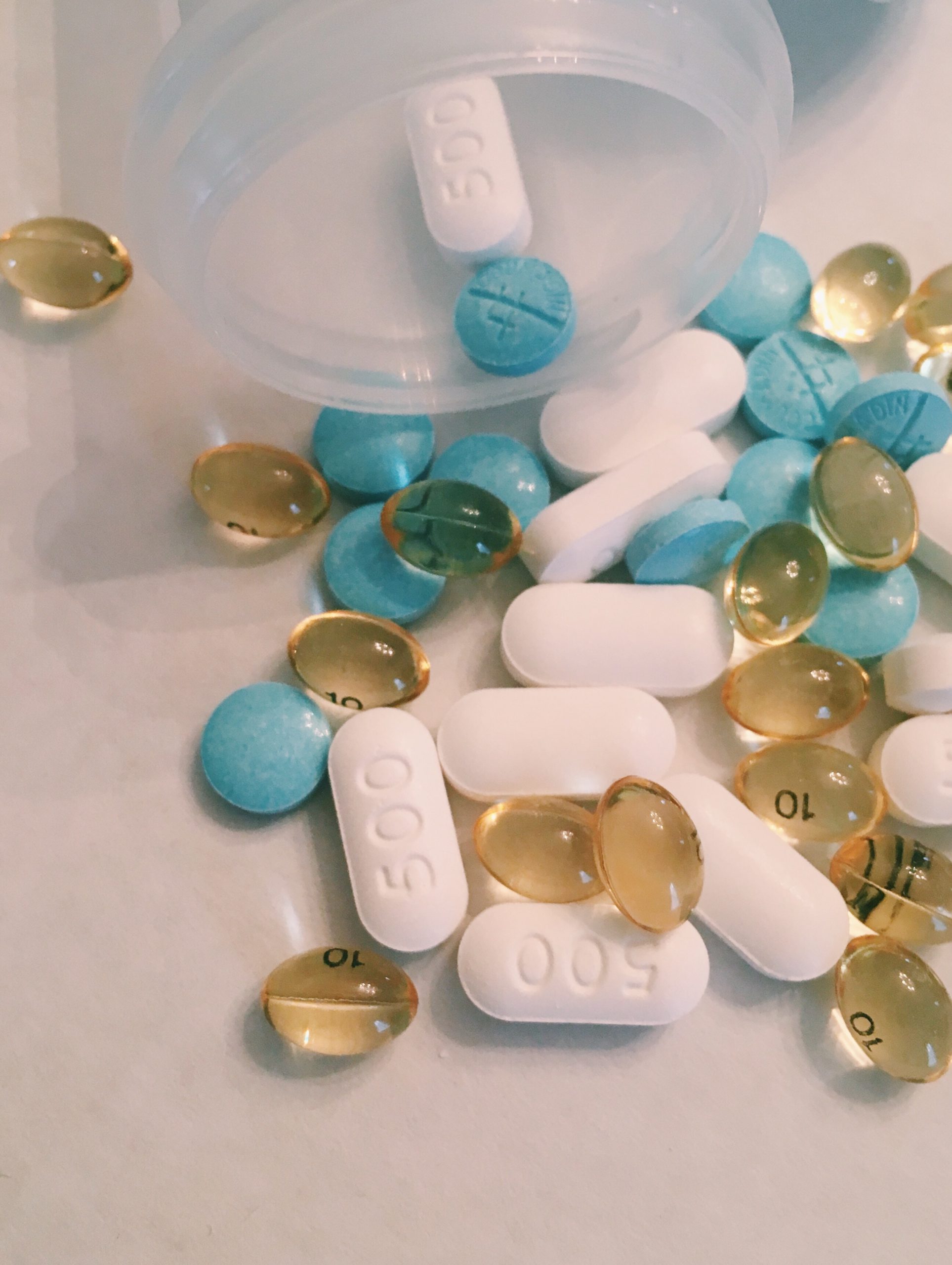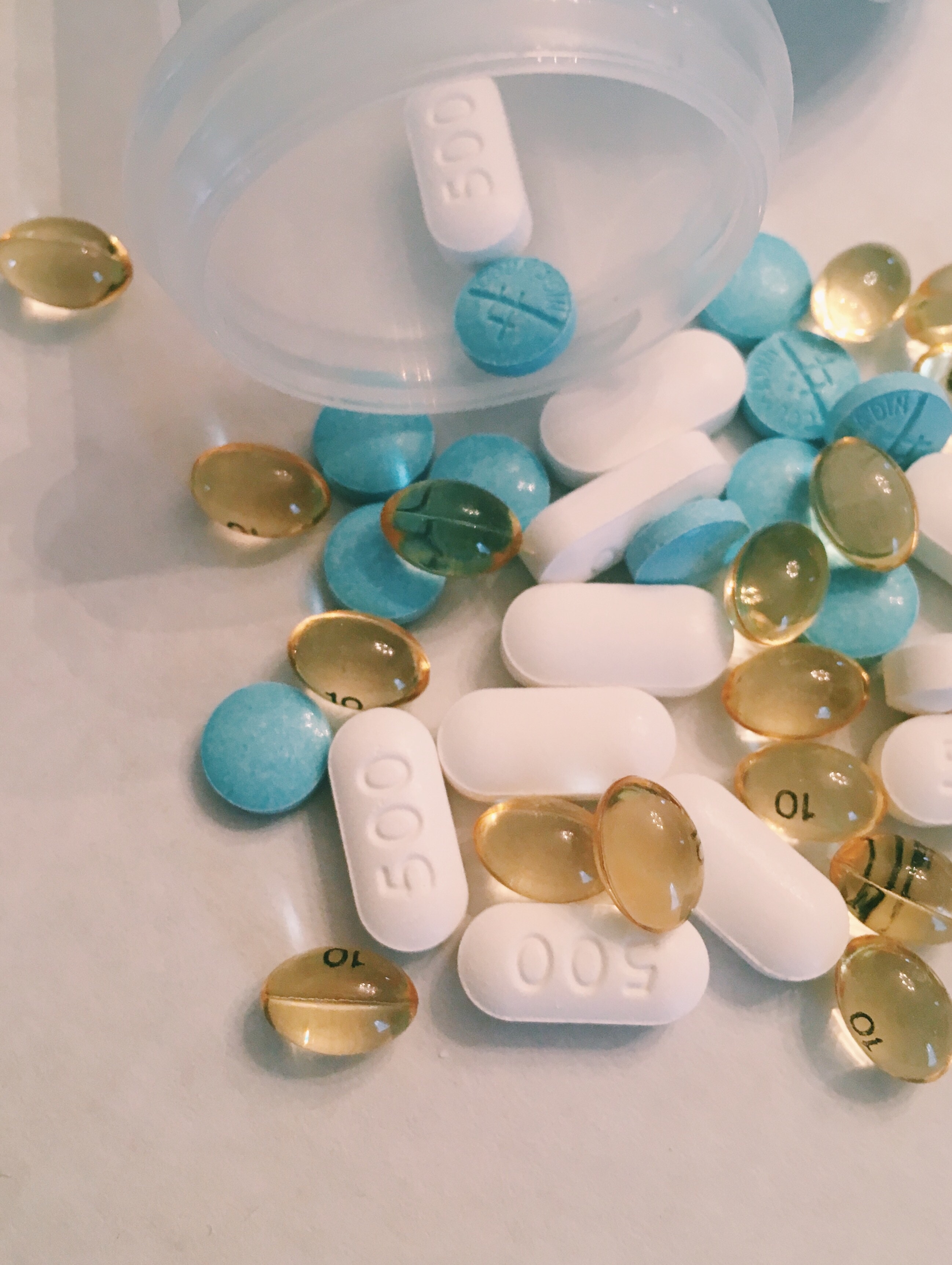I’ve come to hate the word rare. As in, “your reaction is rare,” or “those side-effects are rare,” or “it’s rare for someone to suffer from adverse effects from fluoroquinolones.” It’s such a dismissive thing to say. As if it’s okay for this to happen as long as it’s “rare.” As if it’s okay for a certain number of people to be collateral damage as long as the devastation that they experience is “rare.” As if it’s okay for there not to be any research or resources or justice or answers to questions because the problem is “rare.” As long as what you experience is labeled as “rare,” it doesn’t matter. Your experiences, your pain, your health, stops mattering. You become statistically insignificant.
It’s not a very nice thing to say to people. People who are trying to tell their stories. People who are trying to be heard. People who are trying to get answers, justice and cures. People who have been attacked and who need their pain and suffering to be acknowledged. Telling them that they are insignificant, rare, is just mean.
And is it true? Are adverse effects of fluoroquinolones really rare? How, I wonder, would anyone have a clue? Seeing as there is no recognized diagnosis of (name for) Fluoroquinolone Toxicity Syndrome / Floxing, most people who suffer from it are misdiagnosed. They are either told, as I was, that there is nothing detectable wrong. There was definitely something wrong with me, but “I don’t know” is the most benign wrong answer possible, so I’m thankful for it. Other people who have doctors who are less willing to admit that they don’t know are diagnosed with fibromyalgia, arthritis, chronic lyme disease, leaky gut syndrome, chronic fatigue syndrome, bipolar disorder, depression, anxiety, rheumatoid arthritis, M.S., lupus, sjogren’s disease, or, in children (shudder), autism or autism-like symptoms. Plenty of people who are floxed end up with one of the diseases listed, and fluoroquinolones may (um did, but that’s a bold assertion when I have no proof) have even caused those diseases to emerge. (All of the diseases listed are complex diseases with multiple causes – fluoroquinolones are NOT the only cause of them and they are not the only cause of symptoms like those of the diseases listed above. I’m just saying that sometimes, possibly often, people who are suffering from Fluoroquinolone Toxicity Syndrome are misdiagnosed with those diseases, and for some of the autoimmune diseases, fluoroquinolones may contribute to them.) So people who should have at least a partial diagnosis of Fluoroquinolone Toxicity Syndrome / Floxing / whatever it ends up being called, end up being put into a different disease category and everyone gets to remain willfully ignorant, thinking that adverse effects from Cipro, Levaquin and Avelox are “rare.”
The fact that adverse effects of fluoroquinolones are often delayed makes the connection between the cause (fluoroquinolone antibiotics) and effect (bomb in body and mind) difficult to see. Patients and doctors alike are failing to make the connection between fluoroquinolones and the symptoms that are the manifestation of an adverse reaction to them.
As far as I know, there has never been a study of fluoroquinolones that takes into account the delayed adverse reaction to them that many people experience. Another thing that I have never seen taken into consideration is the fact that there seems to be a threshold for fluoroquinolone tolerance. Some people react negatively to their first pill, but most people tolerate fluoroquinolones for a while (some people can take 5 pills, some can take 500 pills) then, once their threshold is reached, they have a severe adverse reaction. If neither delayed reactions nor thresholds (nor cumulative effects) are being studied, how in the world would anyone have a clue how often adverse reactions truly occur?
The less noticeable adverse effects of fluoroquinolones, effects like mild insomnia, memory loss, urgency of urination, painless muscle spasms, etc. (a list can be found here – https://floxiehope.com/2013/07/10/warning-signs/ ) can even be mis-attributed to aging, dehydration, etc. Though these effects are mild and nothing compared to the triggering of an autoimmune disease-like reaction like full-on floxing is, they’re still adverse effects and they’re still damage done to people by fluoroquinolones. I doubt that these effects are rare. They probably happen to most people who take fluoroquinolones. But they are rarely reported and rarely connected to fluoroquinolones, and thus, everyone gets to continue to think that adverse reactions are rare.
No one really knows how frequent adverse effects of fluoroquinolones are because no one is looking at the full picture and no one is asking the right questions.
Of course, I’m a bit biased, but I see adverse effects of fluoroquinolones everywhere. I don’t have a large number of friends – I’m certainly not a “connector” – yet I have 4 friends (not including facebook friends) who have been adversely effected by a fluoroquionlone. I also went out on a date with a guy the other day who was telling me that he had a rash, an irregularly high heartbeat, loss of endurance, an anxiety attack and leaky gut syndrome after taking an antibiotic. I bet you a buck he was floxed. He didn’t know, his doctor didn’t know, the FDA didn’t know and the pharmaceutical companies didn’t know, so everyone gets to go on thinking that his reaction didn’t happen, and the number of reported adverse reactions remains lower than the number of actual reactions. A lot of people have been adversely effected by these drugs. Most of them recover, thank God. But suffering from any adverse effects from a drug when there are safe alternatives that will get rid of the infection, is wrong. And it isn’t RARE.













great blog entry again, Lisa . . .I always want to take your blog entries to my GP after reading them.
A human isn’t rare unless you are a steak or burger. You are someone’s child, parent, spouse, etc. etc. It is a conversation ender with a doctor, I know I tried. They seem wedded to the pharmaceuticals, makes you wonder, doesn’t it??
My doctor said that it is rare reaction and I told him that no matter what percentage that they think reacts, if you are in that percentage then you are in a world of trouble. He could not deny that statement.
Spot on as always, Lisa. Thanks so much.
With regard to small numbers reportedly affected by side effects, I strongly doubt the percentage – or wording “rare”. I believe the number of victims is higher than statistics show for more than one reason. 1. First, side effects are known to be delayed for a significant number of us. Were they included in the “numbers”?
2. Then there are varying degrees of damage.
3. There are differing lengths of time for recovery. Were remissions addressed?
4. If one is continually prescribed a fluoroquinolone, it seems the chances increase that you will eventually suffer severe side effects, even though you were previously spared? Was that accounted for in the trials?
5. Were all combinations of threat monitored, or even known to exist (ie, corticosteroids, athletic lifestyle?) Were those accounted in the overall percentage of populations that suffer from side effects?
6. Then there are the sheer number of people – including children – that are unaware that their ailments are a direct result of fluoroquinolones.
Do you believe the odds are small? Do you believe that we’re just the unlucky ones, or do you suspect that the numbers are grossly under reported? Your article was timely and glad we agree!
I went to see a Orthopedic DR. I told her my right arm tendon is completely torn off my shoulder. I was told by the DR that tendons don’t just tear, it could only happen from an accident. That was 3 years ago, I just had a MRI of the left shoulder, the same tendon is hanging on by a thread. DR’s have no idea why this is happening, and they have never heard of a medication that can do such a thing!
My Doctor initially acted out of fear when I told him that a Rheumatology specialist diagnosed me with Cipro side effects. He got angry, but as I live in Spain it was all in spanish, and my interpreter would not tell me what he said apart from I was the only one this had happened to. It was “RARE” that was 20 months ago, I was improving quite well, especially after a vacation in the Maldives and being in the Ocean every day. Also I had been on Kerrie knox’s protocol. Everything was going well until I was sent for a Nerve Conduction test which showed NO DAMAGE ha ha. Then I had a massive flare up of PN. I WAS SO ANGRY,I went to the pharmacy that gave me this poison and demanded he went to my Doctors Clinic and tell them all TO STOP DISHING OUT THIS CRAP ON PRESCRIPTION. He speaks English, so that made it easier to give him all the information to take with him, especially the latest advisory from the FDA. It’s shocking, the chemist told me they are prescribing about 35 prescriptions a week. They should all be put in jail.
I am presently having IV’S of Glutathione and various IV’s of vits etc. I had to travel to a different part of Spain to see an ND, everthing I’ve done has cost a fortune. That also anger’s me, because THEY poisoned me and I have to pay to try and heal myself.
The PN had gone down a bit now after 4 weeks after the Nerve test. I would advise not to have it as there is nothing to gain from it and it could set you back again. I have heard of others where it had no effect.
When I get back, I will find out what happened at my Doctors clinic .
There is not ONE MEDICAL TEST THAT HAS HELPED IN ANYWAY WHATSOEVER. So save yourself a lot of stress and time and don’t bother. Go the holistic route, it’s the only chance of getting better.
I wish all my floxy friends speedy healing, or even healing no matter what.
P.S.THANKYOU LISA XX
I’m so sorry to hear about all the reactions. I’m becoming more and more certain that the word “rare” really means they’re not looking and they really hope that’s not what it is because then they’d have to realize they’re causing such grief for people. (I told them that “rare” means it happens to someone — so why couldn’t it be us or another of their patients?)
We haven’t had the same experience, thankfully, but DID have an experience with our 20-year-old son having to have a TDap to study abroad. He hadn’t had any vaccines since 6 or 7 years old. I found out that he needed a doctor’s appointment and to catch up on that vaccine within a week’s time. I didn’t have the wherewithal to deal with it appropriately (much fatigue for years on my part, too) so we opted to have him take the shot since he’d had four iterations of it (in some form) before.
First was the sore injection site in the arm. Then it was hard, hot and the whole arm hurt. Then it was pain in the joints (knees and ankles) as well as back, neck, head, sinuses, teeth — I don’t remember what else. Fever went close to 103 twice before we knocked it down so he could sleep. About the third day, the chest pain started. After three episodes of that, we went in and he ended up being hospitalized for observation and testing (to the tune of $30,000+). Having a high Troponin level is what caused that action. It indicated heart damage. More labs, xrays, tests and even an angiogram (no plaque, thankfully).
Finally they didn’t find anything causative (the shot was ignored). They were going to send him home (and to Russia) with two heart drugs — one of which had a “rare” side-effect of chest pain. No thank you! We opted for homeopathy and supplements. Fortunately, so far, he’s doing okay.
One good thing about this experience — both my son and my husband are converts. Usually it’s me railing and being ignored. At one point in the hospital which we were, once again, trying to ask about the shot — I shut up and let my husband take over. The docs kept saying, “You can’t prove it. Can you admit that?” and I’d say, “Sure. I can admit that. But you can’t prove that it’s not the problem and we at least have a potential precipitating event. Can you admit that?!” Much ignoring and hedging. We left the hospital and were back on our own with a huge bill and really no help. Thanks so much — not.
Thanks for letting me rant here. It just sounded so similar.
I was floxed could barely walk and my Dr being good doctor that he is gave me 6 weeks of glutathione IV once a week and it fixed me. It took me 20 years to figure out between two urinary tract infections what had happened to me the last time I took a fluoroquinolone. At that point I was diagnosed with fibromyalgia that went away after one year. 20 years later put on the same antibiotics by the second day I could not walk period called my doctor figured out it was the fluoroquinolone and the longer you take it or the more times you take it the worst the side effects are. No one should take fluoroquinolone antibiotics they are bad for everyone just some people don’t get side effects until way later. Glutathione should be started as soon as you know what’s happening to you. Even if you had symptoms a long time I would try it should be started as soon as you know what’s happening to you. Even if you had symptoms a long time I would try it. If you cannot find a doctor that would administer because it is an off-label treatment they do sell glutathione suppositories which is the other best way to get it into your body. Glutathione supplements oral form are broken down too much in your digestive tract to be effective.
RARE!!! …. There is nothing rare about being floxed. Anyone who thinks that a drug (antibiotic) specifically designed to enter the mitochondria and disrupt the DNA will only do this to bacteria is nuts. Fluoroquinolones enter the healthy mitochondria of the host body as well as the bacteria. Hence they disrupt the healthy mitochondria of “EVERYONE” to one degree or another. Symptoms may be mild (today) or they may be severe but make no mistake EVERYONE who ingests a Fluoroquinolone is affected. Maybe not today and maybe to a mild degree not connected to Fluoroquinolones, but it is there. To think (medical professionals) and try to convince people otherwise is ludicrous. It is an indisputable fact.
I wonder if this is the reason we see so many cases of autism, fibro, etc. There was a time when I was growing up, you never heard of these ailments and now in the last few years everyone I know has fibro!
… [Trackback]
[…] Here you will find 53576 more Info on that Topic: floxiehope.com/is-fluoroquinolone-toxicity-rare/ […]
… [Trackback]
[…] Read More on that Topic: floxiehope.com/is-fluoroquinolone-toxicity-rare/ […]
… [Trackback]
[…] Read More on on that Topic: floxiehope.com/is-fluoroquinolone-toxicity-rare/ […]
… [Trackback]
[…] Read More on to that Topic: floxiehope.com/is-fluoroquinolone-toxicity-rare/ […]
… [Trackback]
[…] Find More to that Topic: floxiehope.com/is-fluoroquinolone-toxicity-rare/ […]
… [Trackback]
[…] There you can find 36854 additional Info on that Topic: floxiehope.com/is-fluoroquinolone-toxicity-rare/ […]
… [Trackback]
[…] Here you will find 1295 more Information on that Topic: floxiehope.com/is-fluoroquinolone-toxicity-rare/ […]
… [Trackback]
[…] Read More on that Topic: floxiehope.com/is-fluoroquinolone-toxicity-rare/ […]
… [Trackback]
[…] There you will find 29566 additional Info to that Topic: floxiehope.com/is-fluoroquinolone-toxicity-rare/ […]